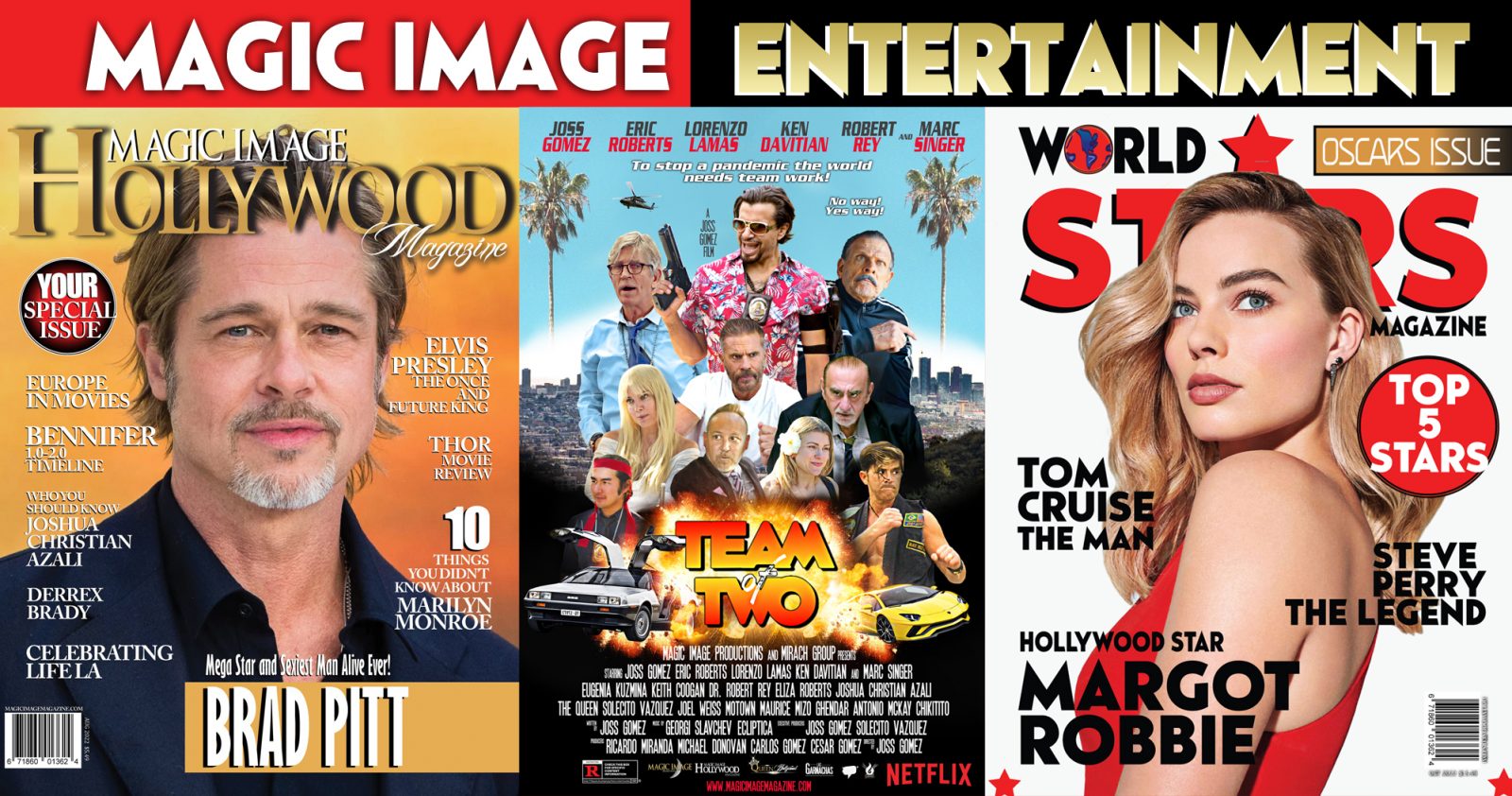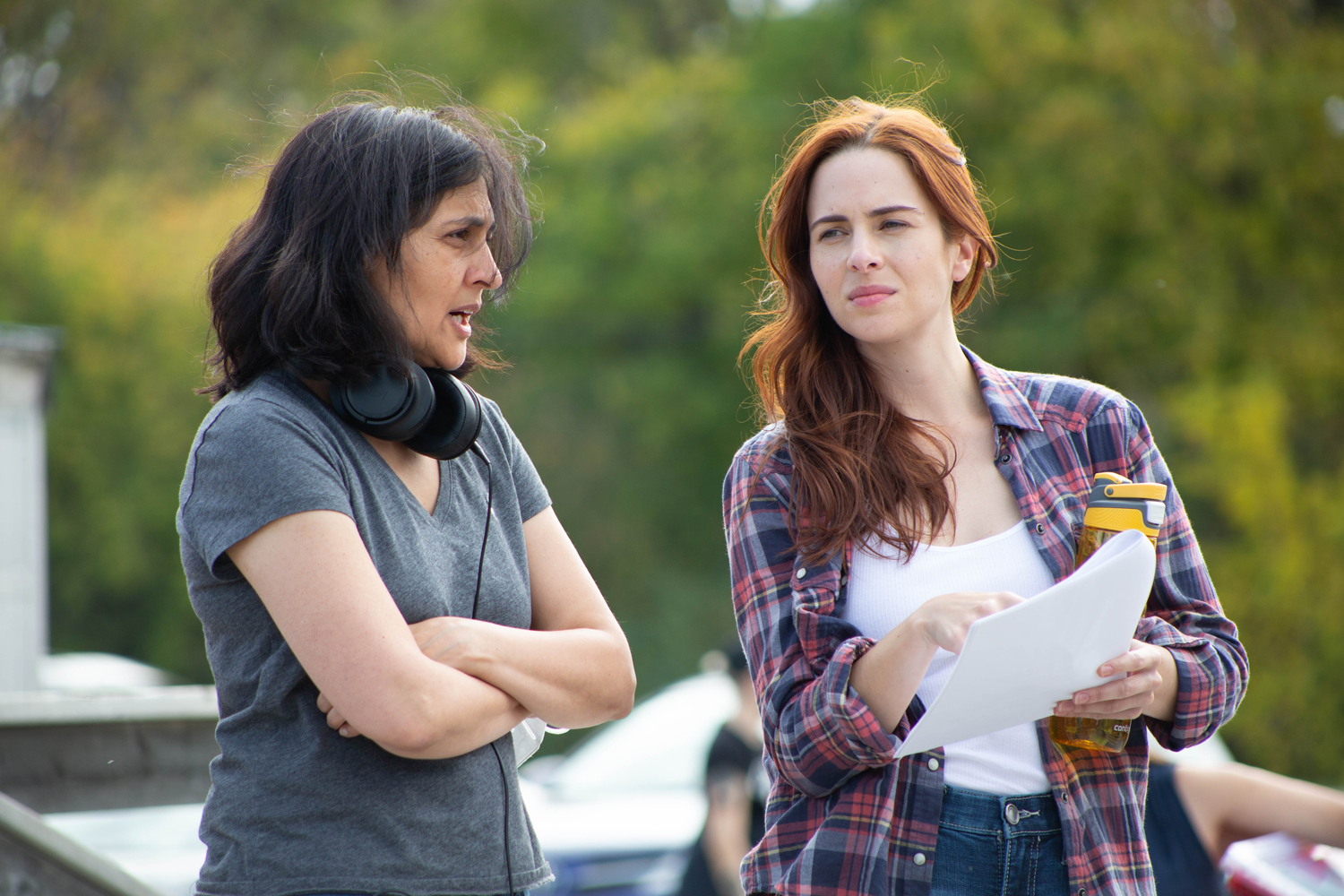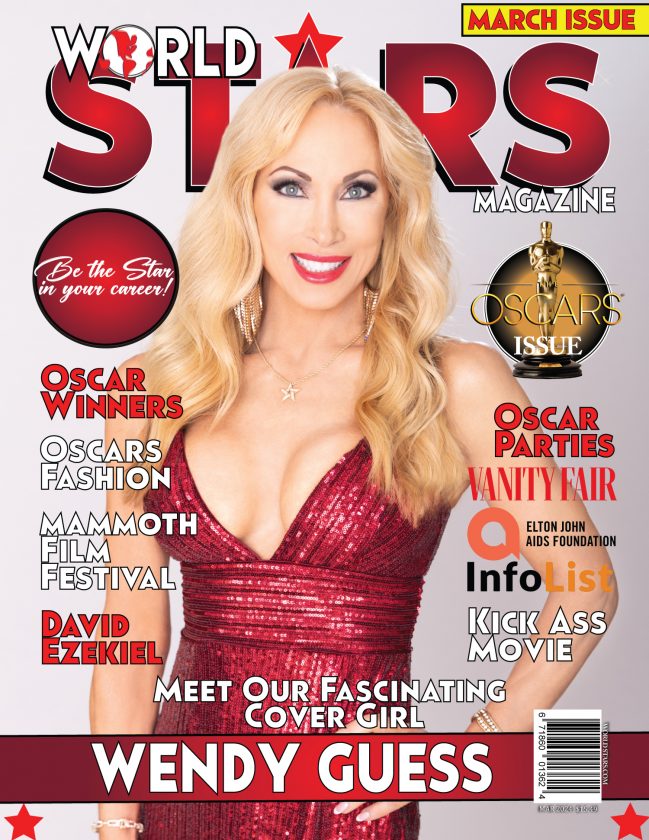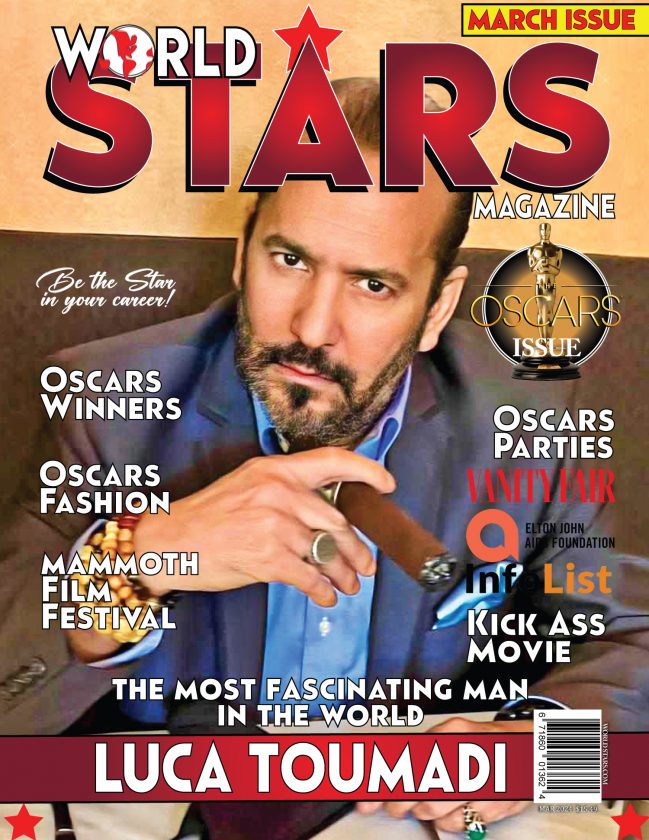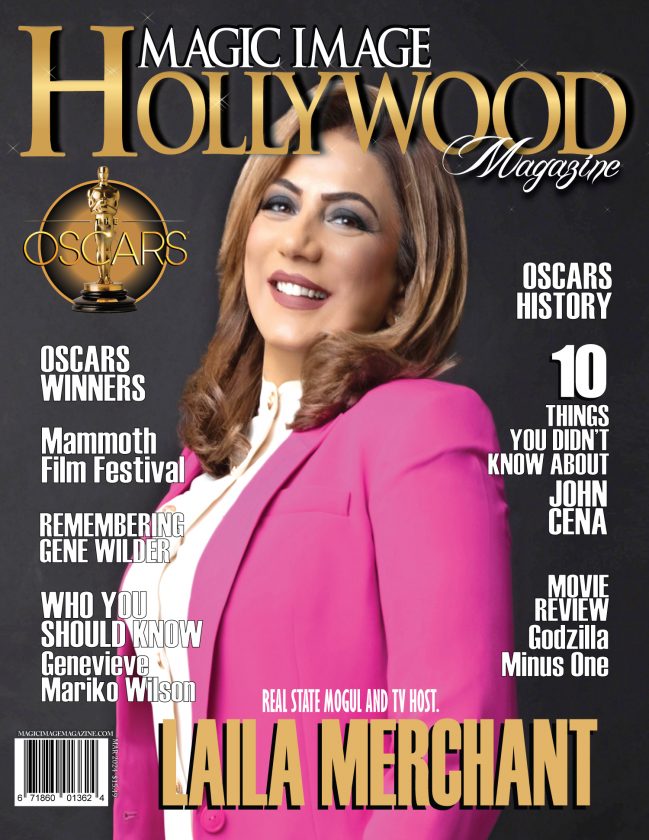Breaking Barriers: Award-Winning Filmmaker Shamim Sarif Pushes Cultural Representation of Muslim Queer Women On Screen.
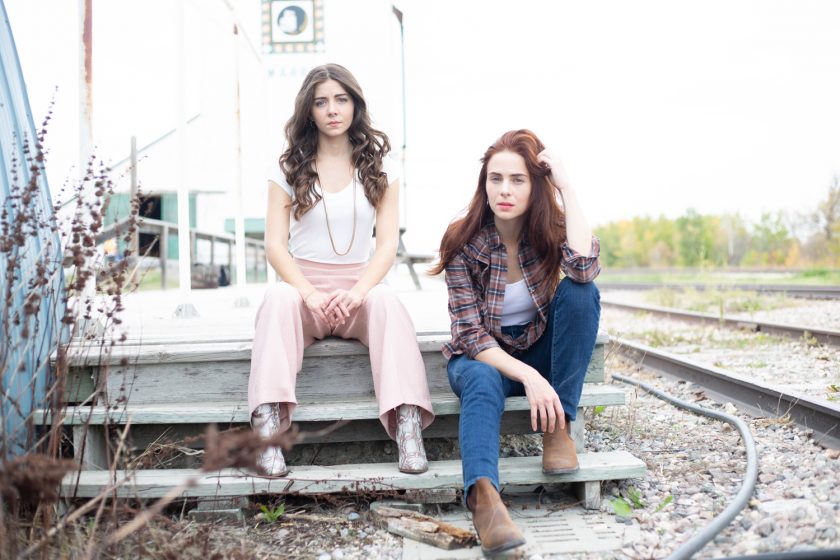
Starring Holly Deveaux and Maxine Denis, POLARIZED is Sarif’s 5th feature film, just out for distribution. A refreshing take on the LGBTQIA+ romance genre.
Shamim, what inspires you as a filmmaker?
It’s been over a decade since our first feature films, I Can’t Think Straight and The World Unseen, were released – but every day I still get messages on social media from women who tell me how these stories changed their lives. As a storyteller, I started out wanting to bring alive characters that were totally under-represented at the time – women of colour and LGBTQIA+ characters who were not just defined by being queer.
In ‘Polarized’, I also felt strongly about challenging the ‘dispossessed immigrant’ narrative on its head with Dalia – a Palestinian scientist running a successful business.
Stories can help us feel validated and accessing the interior life of a character can help us navigate the world. For that reason, it was also important to me to create narratives that suggested hope and possibility instead of despair.
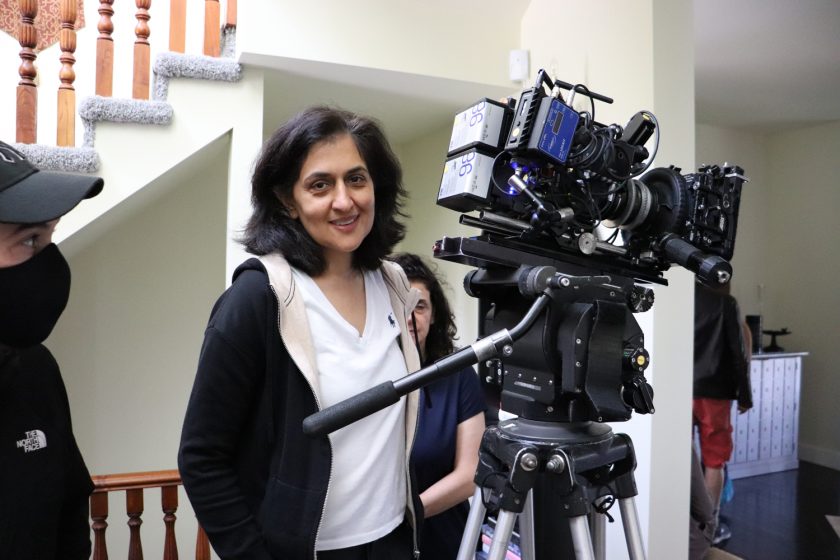
Where did the idea of Polarized come from?
That moment when Trump was elected, closely followed by Brexit – to me it felt like politicians were using fear and racism to make it acceptable to actively hate someone different from you. That inspired me to sit down and write a script. I wanted to explore what it might take for two young women, one evangelical Christian, one Palestinian Muslim, both ingrained with certain beliefs about the ‘other’, to step outside the unspoken barriers between them to become friends and, ultimately, fall in love. It’s an emotional journey I experienced myself when I fell in love with another woman – now my wife – someone who was ‘wrong’ from all the traditional perspectives.
Why is telling this story so important to you, and why are you the best person to tell it?
I was brought up in a Muslim household and 27 years ago, coming out was a real problem. LGBTQIA+ representation was scarce on screen. Things have changed, but not everywhere; recent events in Iran and executions in Saudi have highlighted how brutally hard it continues to be for women and queer people all over the Middle East, as well as parts of Asia.
But, in Polarized, Lisa lives in North America, and still undergoes a form of ‘conversion therapy’ when her family forces an intervention at church. This practice is still legal in many states in the U.S. and was only banned in Canada in 2022. Beyond that, human rights and especially the rights of women and the LGBTQIA+ community are being used as political tools – just look at the Supreme Court’s recent decisions on Roe v Wade.
As we all get pulled apart politically, it was important to me to find a story that acknowledges the differences, but also explores our shared humanity, and deeper connections.
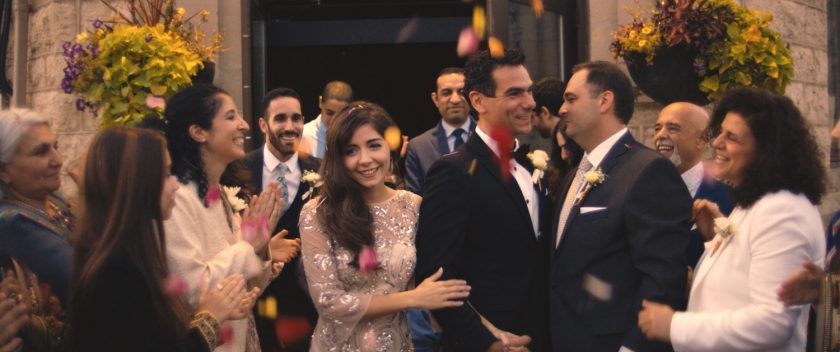
What was the most challenging or unusual part about making this film?
We were in pre-production when a large part of the funding we were expecting fell through. It was incredibly stressful – but together with my producers, Hanan Kattan and Juliette Hagopian, we decided to go ahead and to focus on two things – locations and casting. We had planned a 25-day shoot and cut it to 17 days – but with ten other productions shooting in Manitoba, we struggled to find an experienced crew.
Casting was another challenge, because authenticity was non-negotiable for me – to find Arabic-speaking Canadian actors; a couple of roles were cast literally a few days before principal photography. But it was exhilarating to be able to discover some truly wonderful actors, and Hanan worked with them on authentically Palestinian accents.
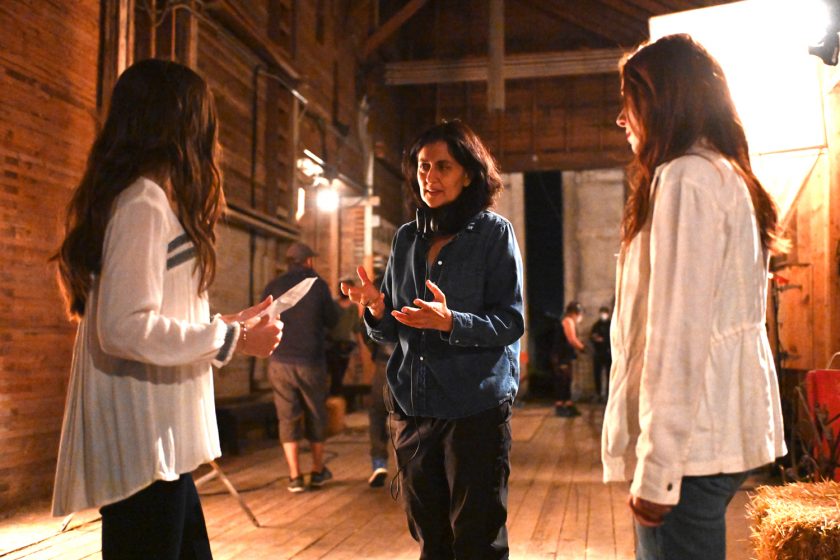
What is unique or unusual about your creative process?
I prep intensively and start shooting with a clear vision – but I really love the collaboration that happens on set. Working with the actors is an absolute focus for me. As an audience watching a film, we connect with the actors above everything else. So, I set up the shots with my DP and then I stay very close to the camera, not behind a monitor. It makes a huge difference to feel the energy on set, to be aware of what the actors are feeling, to maintain eye contact and communication with them between takes.
You are recognized for being a daring storyteller. What leads you to challenge female Middle Eastern representation on screen?
Our families had tremendous issues with my wife and I when we came out and decided to have a family. (Our sons are now grown, and both had roles in Polarized). We know first-hand the challenges that continue to exist around being queer in eastern and Muslim cultures. And there are tropes for Middle Eastern women that I really wanted to look past with Polarized. Dalia is an entrepreneur, proud of her heritage but with a strong vision of the future, and also queer.
It was a struggle to finance our stories, especially 15 years ago when film financing was based on theatrical distribution decided by overwhelmingly older, White, male gatekeepers. We were often asked to ‘de-gay’ a character or make one of them White – but we resisted. It was not easy, but Hanan managed to get our films made, with small theatrical releases. Between them, our first three features have won 47 awards and premiered at festivals such as TIFF, London and Palm Springs.
Your lead characters live opposite lives. What attracted them to each other?
The young women in Polarized clash at the start – then slowly find out that they share similar values, hopes, dreams. When they recognize that in each other, it’s a deep connection that begins to feel more real than the lives their families have laid out for them.
Both Dalia and Lisa face similar restrictions in their very different worlds. For both characters, ‘family values’ are defined within a framework of heterosexuality and patriarchy. Finding a way to feel empowered in the face of disapproval from family and community is a core theme in Polarized.
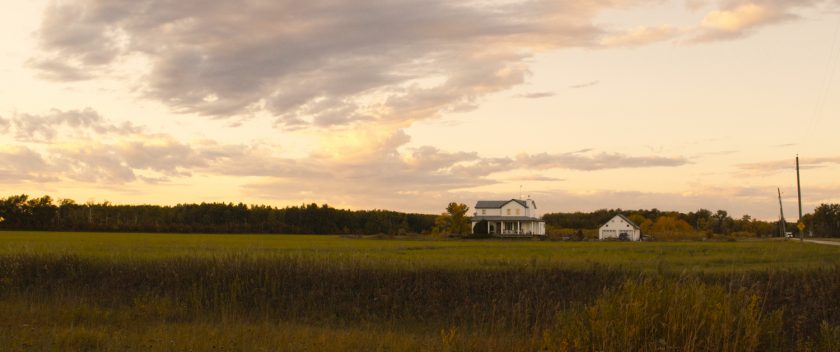
Why did you set your story in Manitoba? Was it an artistic choice or a decision influenced by the great financial incentives available there?
From the first page of the screenplay, I’d envisaged a particular visual palette – endless prairie landscapes, big skies and small towns; a world where everyone knows everyone, and so keeping to your side of town becomes a statement. But also, I wanted a rural world where time moves slower, and where there’s a sense of isolation; where small moments, touches, smiles, impacts our characters deeply. As soon as we scouted Manitoba, I knew that these breathtaking landscapes would become another character in Polarized.
Tell us about your lead actresses. What is special about them and why did you want to work with them?
I was lucky enough to be able to scout all over Canada for the absolute right actors for these rolesl.
There were a couple of key needs – for Dalia to speak Arabic, and for Lisa (an aspiring songwriter) to be able to sing. But I was also looking for actors who could find the emotional beats of a scene without the dialogue and Holly Deveaux and Maxine Denis were standouts.
We built in a few days before principal photography to work together. Lisa is an interior character, who says little, but has ambition and dreams. Holly created lots of small moments, like her confident physicality driving and getting in and out of Lisa’s pickup truck, that give you the feeling that inside Lisa is a rebel waiting to get out.
With Maxine, it was so great to have an actor who understood at a cellular level the dynamics of a Middle Eastern family, and who wasn’t afraid of creating space in her performance, outside the dialogue, for Dalia’s unspoken feelings to exist outside the busy-ness of her work and home life.

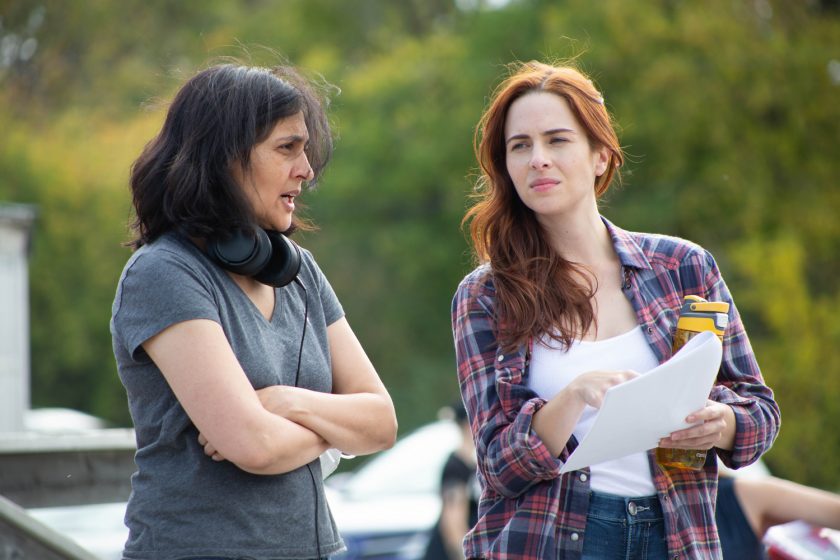
What keeps you motivated and moving forward?
There’s always more we can do to improve inclusivity in our industry. Hanan and I strive to put people from underserved communities behind the camera as well as in our stories. Whenever I direct, I like to have a woman of colour shadowing me – directing is complex and I think it’s important to help new directors evolve and learn the ropes. We were also thrilled to executive produce a short directed by Arab-Canadian actress Baraka Rahmani. We’d love to grow this kind of support, and to continue our tradition of charity screenings for causes like the Galilee Foundation and the Nelson Mandela Children’s Fund.
And, through our growing slate, I’d like to inspire many more people with the idea that we should never be afraid to question the reality we’ve been raised with. That boundaries should be there to protect us from hate or violence, but they should never restrict who we can love.
Trick question: do you think sexual harassment will ever be abolished? How can we improve women’s safety in society?
We can definitely make harassment unacceptable. To me, the horror of sexual harassment has always been how prevalent and accepted it has been, especially in the film industry. No actress should ever have been asked to meet in a hotel room or be pressured to please men to get a role. It’s shocking it lasted this long. The #MeToo movement helped a lot, but too often, even today, women are treated radically differently to men in subtle but impactful ways.
As a storyteller, my way of trying to help is through narrative, images, and representation. When you get to know a queer, Muslim character as a person, not just a faceless group, I think that can help wash away stereotypes.
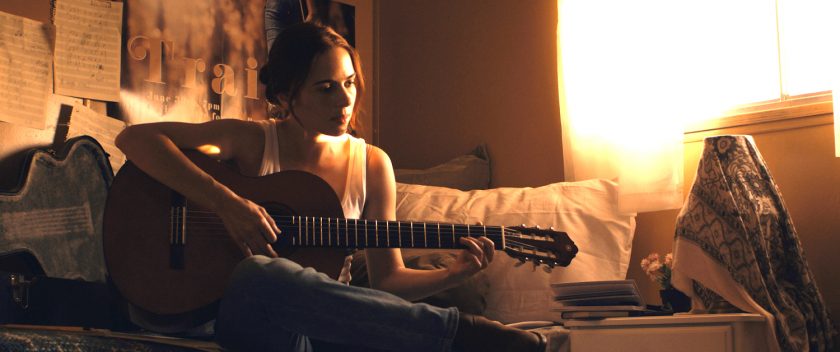
What is the one question journalists never ask you but that you are dying to answer? Go for it!
I’d love to talk about the music in Polarized!
The lead character, Lisa, is a songwriter and I was thrilled to work with a stunningly talented Canadian singer/songwriter, Brooke Palsson, on creating Lisa’s songs. Brooke and our composer Kevon Cronin collaborated to write our end credit song, sung in Arabic by the talented singer Malayka and in English by Brooke, and featuring Palestinian oud and drum players and a string section from Bulgaria.
We were fortunate that Telefilm came in with some funding after we finished filming and we were able to to licence most of my wishlist songs – from country-influenced artists like Rosanne Cash, Ashley Monroe and Hindi Zahra, to Arabic language songs from Palestinian artists like Abe Batshon and DAM, as well as Natacha Atlas, Terez Sliman and Haya Zaatry.
